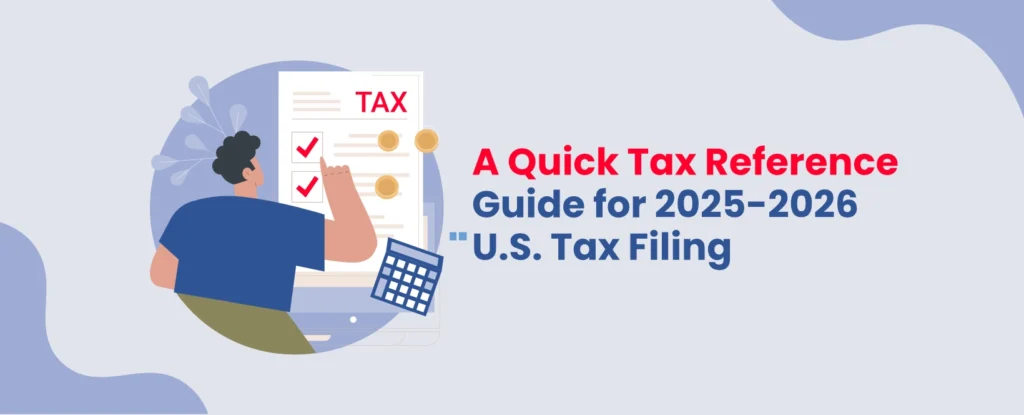To those unfamiliar with the financial world, bookkeeping and accounting are two terms that sound similar. This is because they both involve managing financial data within a business context. But these two tasks are as different as chalk and cheese.
Bookkeeping, in broad strokes, focuses on recording transactions and maintaining records. Accounting, on the other hand, focuses on analyzing and interpreting the recorded data. Despite the difference, bookkeeping and accounting are interrelated tasks that complement each other.
While bookkeeping arranges financial data in an organized manner, accounting uses this organized data to guide businesses toward their financial goals. Together, bookkeeping and accounting form the backbone of financial management.
In this blog, we’ll have a closer look at bookkeeping vs accounting services. We’ll try to understand the fundamental differences between the two, their types, and the key steps involved.
What is Bookkeeping?
Bookkeeping is the systematic process of recording all financial transactions that a business undertakes right from start to closure. It is a critical process because it tracks where money is being earned and spent in a business.
Types of Bookkeeping:
Primarily there are two types of bookkeeping methods:
- Single-Entry Bookkeeping: This method keeps track of the basic spending and earnings of a company. It’s a straightforward method that involves entries made for earning and spending.
- Double-Entry Bookkeeping: This is a method that keeps track of all transactions, including assets, liabilities, and overall financial health. It is a more complex method as each entry has to be corresponded with an opposite entry to balance the books.
Who Takes Care of Bookkeeping
Bookkeeping is taken care of by an in-house bookkeeper or an outsourced bookkeeping service provider. The primary task of a bookkeeper entails maintaining day-to-day financial records, ensuring transactions are accurately recorded, and managing general ledgers. Competent bookkeepers are organized, proficient with numbers, and possess problem-solving skills.
Common Bookkeeper Responsibilities:
- Recording Financial Transactions: Keying in transactions related to purchases, sales, receipts, payments, etc.
- Maintaining General Ledger: Maintain the general ledger and keep it updated at all times.
- Bank Reconciliation: Reconcile bank statements with the general ledger to identify discrepancies.
- Accounts Receivable and Accounts Payable: Issue invoices to customers and ensure timely receipt of payments.
- Assist in Financial Reporting: Assist accountants in preparing financial reports such as balance sheets, income statements, and cash flow statements.
The Bookkeeping Process
Bookkeeping involves several key steps. These steps include:
- Collecting Source Documents: Gathering all relevant financial documents such as receipts, invoices, purchase orders, bank statements, and bills.
- Recording Transactions: Entering financial transactions into the accounting system. This includes documenting income, expenses, sales, and purchases. Transactions are recorded using either a single-entry or double-entry system.
- Posting to the General Ledger: Posting journal entries to the general ledger. The ledger contains all the accounts and tracks the changes resulting from transactions.
- Reconciling Accounts: Comparing the financial records with bank statements and other financial documents to ensure accuracy and consistency. Adjusting discrepancies if any.
What is Accounting?
“Bookkeeping provides the history of a company’s financial activities, but accounting uses that history to craft a future for the company.” – Richard Branson
Business Accounting is the process of analyzing and interpreting the documented business financial transactions (completed by bookkeepers) in greater depth. It is presented in the form of a summary, analysis, and inferences to business management, tax collectors, and regulators. It’s a process that tells the financial story to the business management and accurately depicts the company’s financial activities and its compliance with tax laws.
Types of Accounting
- Financial Accounting: Preparing financial statements for external stakeholders such as investors, creditors, regulators, and the general public.
- Managerial Accounting: Providing financial information and analyses to internal stakeholders, primarily management, to support decision-making, planning, and control.
- Cost Accounting: Involves recording, classifying, analyzing, and allocating costs associated with producing goods or services.
- Tax Accounting: Involves preparing and submitting tax returns and ensuring compliance with tax laws and regulations.
Who Takes Care of Accounting?
Accounting responsibilities are typically managed by professionals known as accountants. These individuals are trained in financial management, analysis, and reporting. Accountants may work within organizations as staff accountants or controllers, or they may work for accounting firms that provide expert accounting services to multiple clients. Businesses depend on their knowledge to make informed financial decisions and meet regulatory requirements.
Common Accountant Responsibilities:
- Supervising Bookkeeping: Overseeing the accuracy of bookkeeping, identifying and addressing discrepancies promptly, and reviewing all accounting transactions.
- Interpreting Records: Rectifying clerical errors in bookkeeping and utilizing these records to interpret the financial health of the business.
- Creating Financial Statements: Adjusting the trial balance and preparing essential financial statements such as the income statement, balance sheet, etc.
- Conducting Financial Audits: Conducting thorough audits to analyze and verify all financial records and statements of a business.
- Managing Tax Returns: Compiling necessary financial reports for tax returns and submitting these filings to tax authorities.
- Simplifying Financial Understanding: Interpreting financial data, providing insights into expenditure patterns, and assisting in informed financial decision-making.
The Accounting Process
The accounting process involves several key steps. These include includes:
- Reviewing and correcting financial transactions, such as sales, purchases, and expenses, in journals and ledgers.
- Summarizing and classifying the transactions in the trial balance to verify accuracy.
- Adjusting entries to account for accrued expenses, prepaid items, and depreciation.
- Preparing financial statements comprising the income statement, balance sheet, and cash flow statement to provide a snapshot of the company’s financial performance.
- Communicating the reports with stakeholders, including management, investors, and regulatory authorities
Bookkeeping vs Accounting Difference
| Bookkeeping | Accounting |
| Task Type: Clerical | Task Type: Analytical |
| Goals: Analyze financial information and financial roadmap | Goals: Analyze financial information and financial roadmap |
| Responsibilities: Daily Data EntryMonitoring Expenses vs. Earnings | Responsibilities: Tax planning and complianceStatement generation |
Don’t Leave Your Books Untended
Bookkeeping and accounting are two distinct processes with different objectives, yet they are integral for your business’ effective financial management. Bookkeeping focuses on the meticulous recording of financial transactions, providing the foundational data necessary for accounting. Accounting, on the other hand, analyzes and interprets this data to provide insights, ensure regulatory compliance, and guide strategic decision-making. Both processes are essential for maintaining the financial health and operational efficiency of a business.
Whether you need precise transaction recording or strategic financial analysis, KnowVisory’s bookkeeping and accounting specialists can help you manage your business’s finances more effectively. From maintaining daily financial records to preparing comprehensive financial statements, our experts ensure your financial processes are seamless and accurate.
Contact us today to optimize your financial management and drive your business toward success.


